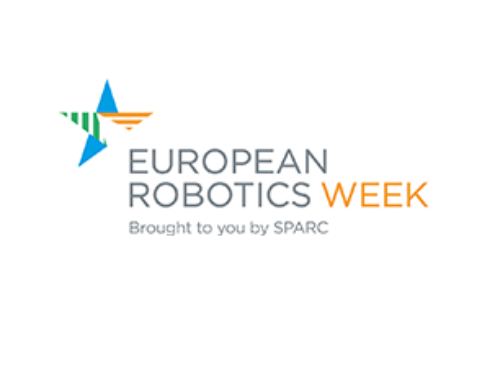On April 26 at noon, at Instituto Superior Tecnico’s Civil Pavilion, an uncommon art exhibit had its grand opening.
The exhibition “Artes e Tecnologia” is composed of a collection of digital paintings by Professor Andrzej Wichert (INESC-ID) that depict his life experience, his childhood memories, and the places he has visited, and his way of seeing the world.
Art is usually a form of communication that can cross language and cultural boundaries and, in this case, it will even be the setting for human-robot interactions.
While appreciating the paintings, visitors might connect with Vizzy, a social robot.
“As roboticists working toward more human-like social robots (and as humans ourselves), we believe that art can also connect humans and robots, allowing robots to learn more about us and human communication.” João Avelino, an ISR-Lisboa researcher, sees this event as a precious chance to perform experiments that may develop the skills of Vizzy the robot. “We deeply thank professor Wichert and all people who made this exhibit possible and for this opportunity to perform experiments in an art-based scenario.”
Don’t miss this opportunity to admire art and technology together, at Pavilhão de Civil on the Alameda campus, from April 26 to May 06.


